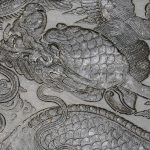“Doan Ngo Festival”, also called “Tết giết sâu bọ” (translated as Festival for “Killing the persons’ inner insects”), is the second most significant festival (to the Lunar New Year Tet Holiday) of Vietnam.
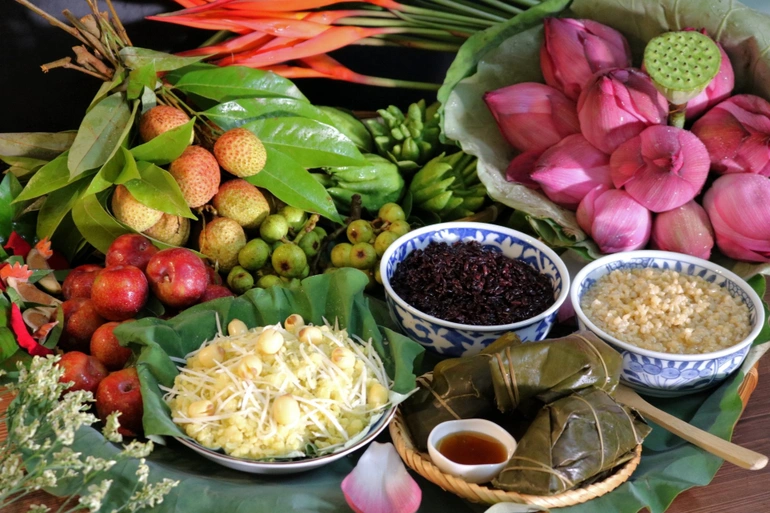
What does these names mean?
Literally, Tet refers to festival, Doan means the start, Ngo is the seventh animal of the Chinese zodiac- the horse. Doan Ngo festival is also known as Tết sâu bọ (sâu bọ = worms, pests) or Tết tháng 5, to be celebrated on the 5th day of the 5th lunar month.
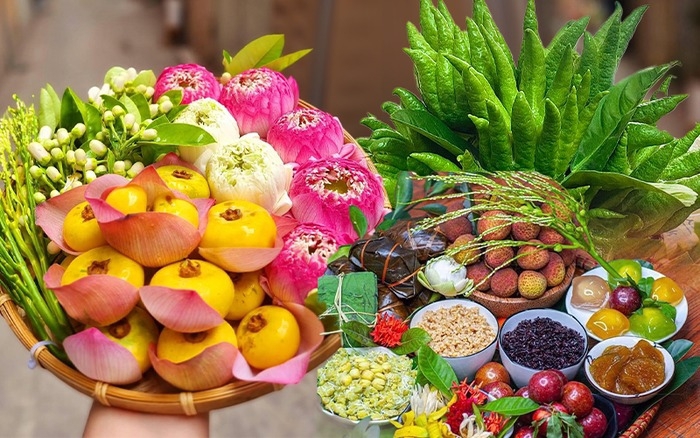
What is Doan Ngo Festival?
The term “Tet sau bo” comes from the fact that farmers start producing their crops for the new season on this day by getting rid of all pests. To overcome this, creatures and people must become stronger in both their physical well-being and spiritual selves. On this particular day, the entire family must up early to eat fermented stickiness and fruit. The service is conducted at midday, or Ngo hour. Eating dumplings, especially lye water dumplings, is a ritual that originated with the idea that doing so would rid one’s body of any unwelcome “parasites”.
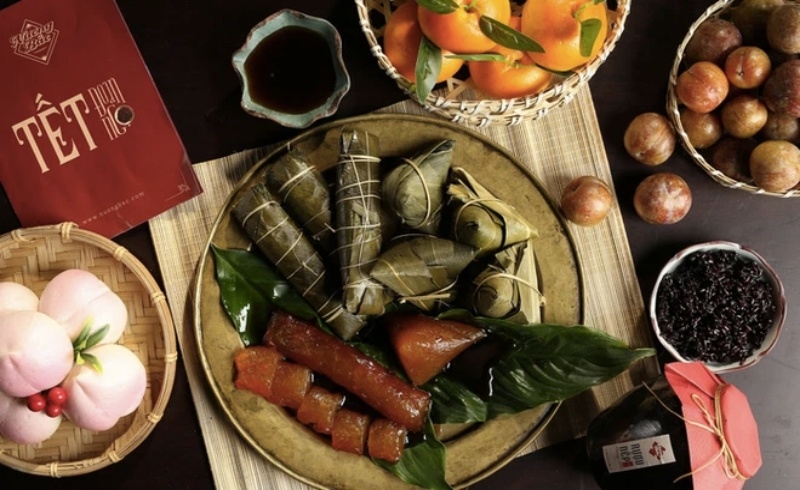
Two Irreplaceable Dishes in Doan Ngo Festival
The two traditional types of food to be eaten on this holiday are Banh U and Com Ruou.
Banh U
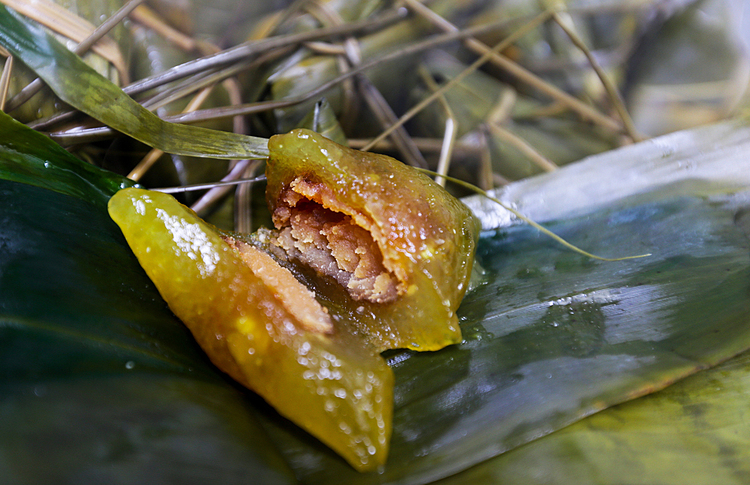
Pyramid-shaped sticky rice cakes called banh u are covered in banana leaves. They frequently contain beans and the essence of banana leaves, which gives the food its distinctive flavor.
Com Ruou
How it is like?
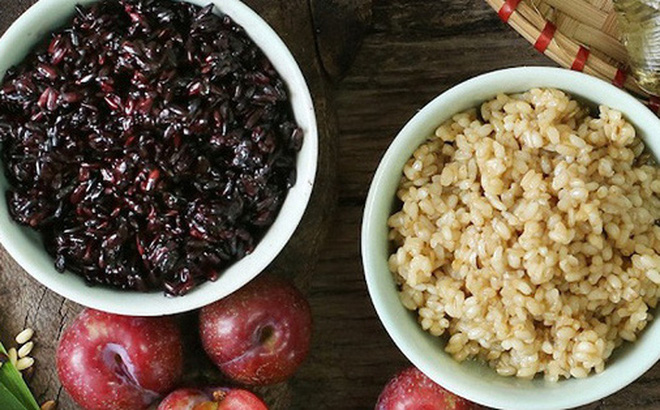
Little fermented rice balls known as “com ruou,” which means “rice wine,” are dipped in wine. The tale that two orphan brothers once coexisted in a small village is connected to the term “com ruou.” Their brilliance and charity won them favor among the villagers. Additionally, there were two snakes in that village named Thanh Xa and Bach Xa that, after living a long life, evolved into spirits. They fell in love with the brothers and changed into stunning women to entice the males. Their wish was quickly fulfilled when Thanh Xa wed the older brother and Bach Xa the younger.
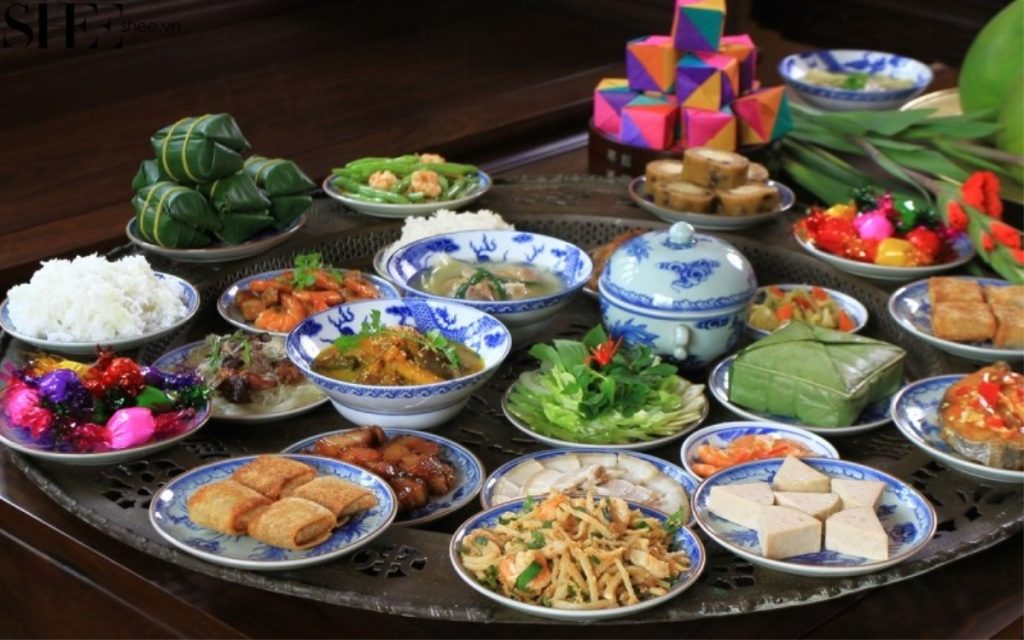
They cohabitated peacefully up until that point, when the men started to get sicker and more afraid of the sun, leading a life of festering darkness. Locals thought there might be a malevolent ghost there; fortunately, a Taoist hermit happened to stroll through the area one day. He ran some spirit-type tests after being informed of the condition and discovered that the men’s abode had an infestation of the horrors. He made a wine potion and instructed the villagers to give it to the men. The solids and liquids of the potion must be consumed by the brothers in the early hours of the next fifth day of the fifth lunar calendar.
After the men finished their special breakfast, their wives were transformed into snakes in their true form before dissipating in a cloud of smoke, liberating the brothers. Since then, in an effort to ward off evil spirits, people have eaten “ruou nep” on Killing the Insect Day.
How to Make It?
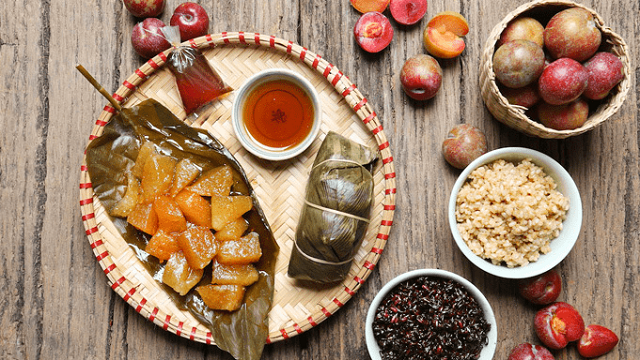
Making Com ruou takes a while but is not particularly difficult. Farmers must carefully harvest the reaped rice from a paddy, dry it, then pound it to retain the rice’s most nutritional component in order to have good com ruou for the Doan Ngo Festival. The rice is first steam-cooked twice for around 30 minutes before being set aside to cool. Then, depending on the weather, it is combined with yeast and let to ferment for two or three days. On this day, com ruou is consumed early in the morning to combat the “worms” in the stomach.
If you give it a try, you’ll discover that Com ruou has a powerful and delectable flavor. Any parasites in the body can be killed by com ruou, according to the traditional Vietnamese idea. The majority of Vietnamese people, including adults and children, enjoy eating com ruou, but adults are more likely to take its supposed medicinal properties with a grain of salt.
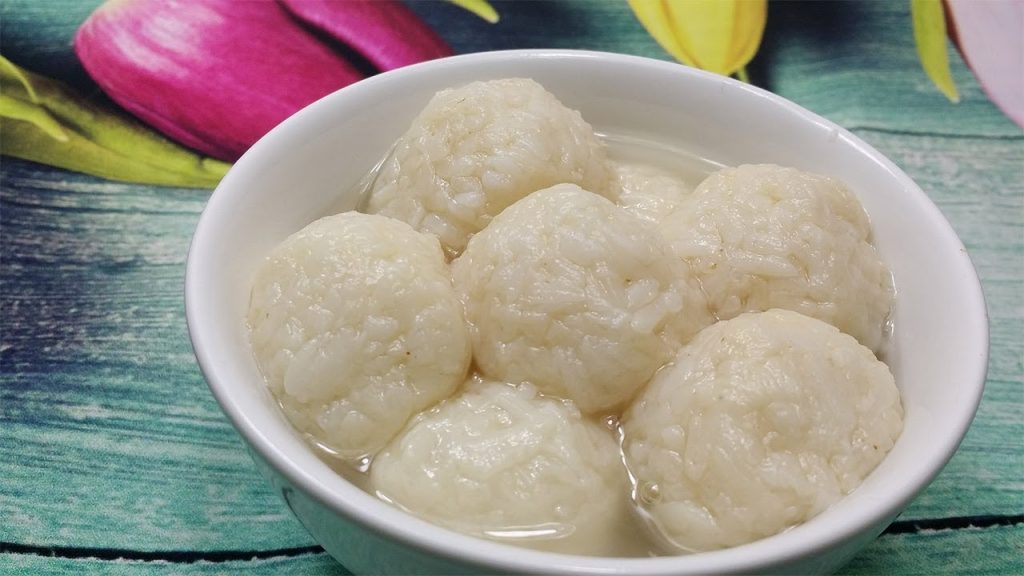
Up to now, besides the Lunar New Year Holiday, Doan Ngo Festival plays a significant role in every Vietnamese life for practical and holy meanings. Enjoying the atmosphere of Doan Ngo Festival, you will get to know more about its value and spirits.
This year’s Doan Ngo Festival falls on June 22, 2023.



